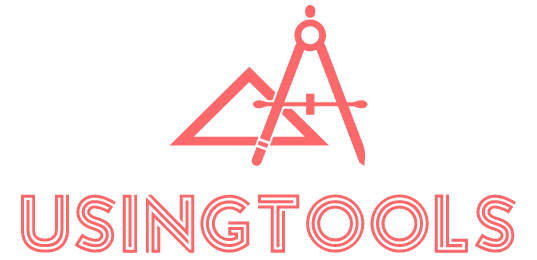What is an Instant App for Credit Score Check?
An instant app for credit score check is a mobile application that allows users to quickly and conveniently check their credit score and credit report without having to download or install a full application on their device. These apps leverage instant app technology, which enables users to access and use certain features of an app without the need for a complete installation.
The primary purpose of an instant app for credit check is to provide consumers with easy access to their credit information, enabling them to monitor their credit health and make informed financial decisions. By offering a streamlined and user-friendly interface, these apps empower individuals to take control of their credit standing and address any potential issues or discrepancies promptly.
One of the key benefits of instant apps for credit check is their convenience and accessibility. Users can simply click on a link or scan a QR code to launch the app instantly, eliminating the need for lengthy downloads or installations. This feature is particularly advantageous for individuals who may have limited storage space on their devices or prefer a more lightweight approach to accessing credit information.
Additionally, instant apps for credit check often offer a range of features beyond just credit score and report retrieval. Some apps may provide personalized recommendations for improving credit scores, alert users to potential identity theft or fraud, and offer educational resources to enhance financial literacy. By consolidating these functionalities into a single platform, instant apps aim to create a comprehensive and user-friendly experience for managing one’s credit health.
Table of Contents
How Does an Instant App for Credit Check Work?
An instant app for credit check allows users to quickly and conveniently access their credit reports and scores without having to download or install a full application. These apps leverage modern web technologies to provide a seamless, app-like experience directly from a web browser or mobile device.
The process typically begins with the user visiting the app’s website or clicking on a shared link. Upon arrival, the app will prompt the user to provide necessary personal information, such as their name, address, and Social Security number. This information is required to verify the user’s identity and retrieve their credit data from the major credit bureaus.
Once the user’s identity is confirmed, the app will securely fetch their credit reports and scores from the relevant credit bureaus. This process is often facilitated through partnerships or integrations with the bureaus, ensuring that the data is accurate and up-to-date.
The user interface of an instant credit check app is designed to be intuitive and user-friendly. Credit reports are typically presented in a clear and organized manner, with sections highlighting important information such as credit accounts, payment history, and credit utilization. Scores are prominently displayed, and many apps provide explanations and insights to help users understand the factors impacting their credit standing.
Advanced features may include credit monitoring services, which alert users to any changes or potential issues with their credit reports. Some apps also offer personalized recommendations and action plans to help users improve their credit scores over time.
The user experience is streamlined, with minimal friction or downloads required. Users can access their credit information quickly, without the need for lengthy sign-up processes or app installations. This convenience makes instant credit check apps particularly appealing for individuals who need to check their credit regularly or on-the-go.
Why Use an Instant App for Credit Check?
Instant credit check apps offer several advantages over traditional methods of obtaining credit reports and scores. One of the primary benefits is convenience. With these apps, you can access your credit information instantly from your mobile device, eliminating the need to request reports through mail or visit a credit bureau office. This level of accessibility allows you to monitor your credit more frequently and stay informed about any changes or potential issues.
Another significant advantage of instant credit check apps is their user-friendly interface. These apps are designed to present complex credit data in an easy-to-understand format, often with visual aids like graphs and color-coding. This simplifies the process of interpreting your credit information, making it more accessible to individuals who may not be familiar with the intricacies of credit scoring.
Furthermore, instant credit check apps provide a streamlined experience by integrating various credit-related services into a single platform. In addition to viewing your credit reports and scores, many apps offer features like credit monitoring, identity theft protection, and personalized recommendations for improving your credit. This consolidation of services can save time and effort compared to managing multiple accounts or subscriptions.
Accessibility is another key advantage of instant credit check apps. Traditional credit reporting methods may require specific documentation or involve fees, creating barriers for some individuals. In contrast, many instant credit check apps are free or offer affordable subscription plans, making credit information more accessible to a wider range of consumers.
Overall, instant credit check apps offer a convenient, user-friendly, and accessible solution for monitoring and managing your credit. By leveraging the power of mobile technology, these apps empower consumers to take control of their financial well-being and make informed decisions regarding credit and personal finance.
Security and Privacy Considerations
When using an instant app for credit check, it’s crucial to consider the security and privacy aspects involved. These apps typically require users to provide sensitive personal and financial information, which could be at risk if not handled properly. Here are some key security and privacy considerations:
Data Protection: Reputable instant credit check apps should have robust data protection measures in place to safeguard users’ personal and financial information from unauthorized access, theft, or misuse. This may include secure servers, firewalls, and encryption protocols to protect data both in transit and at rest.
Encryption: End-to-end encryption is essential to ensure that sensitive data, such as Social Security numbers, credit card details, and financial records, remain secure during transmission and storage. Look for apps that use industry-standard encryption algorithms like AES-256 or higher.
User Consent and Control: Transparent privacy policies and user consent mechanisms are crucial. Apps should clearly explain how user data will be collected, used, and shared, and obtain explicit consent from users before accessing or sharing their personal information. Users should also have control over their data and the ability to revoke access or delete their information if desired.
Third-Party Integrations: Many instant credit check apps integrate with credit bureaus, financial institutions, or other third-party services to retrieve credit reports and scores. It’s important to ensure that these third-party integrations adhere to strict security and privacy standards and that user data is not shared or misused.
Regular Security Updates: Developers should regularly update their apps with the latest security patches and vulnerability fixes to mitigate potential risks and protect against emerging threats.
By prioritizing security and privacy, instant credit check apps can build trust with users and provide a safe and secure platform for accessing credit information.
Popular Instant Apps for Credit Check
There are several popular instant app options available for checking your credit score and report. These apps offer a convenient way to access your credit information quickly and easily from your mobile device. Here are some of the most widely used instant credit check apps:
Credit Karma: One of the most well-known credit monitoring apps, Credit Karma provides free access to your credit scores from TransUnion and Equifax, as well as credit reports and monitoring services. The app offers user-friendly features, including credit score simulators and personalized recommendations to improve your credit.
Experian: The Experian app allows you to access your FICO score and Experian credit report for free. It also provides credit monitoring services, credit education resources, and personalized recommendations based on your credit profile.
myFICO: Developed by FICO, this app gives you access to your FICO scores from all three major credit bureaus (Experian, TransUnion, and Equifax). While not free, myFICO offers comprehensive credit monitoring and identity theft protection services.
Mint: Primarily a budgeting and personal finance app, Mint also provides free access to your credit score from TransUnion. It allows you to monitor your credit score alongside your financial accounts, bills, and budgets.
NerdWallet: In addition to offering personal finance tools and resources, the NerdWallet app provides free access to your TransUnion credit report and VantageScore credit score. It also includes credit monitoring and personalized recommendations.
These instant credit check apps vary in terms of features, pricing (some are free, while others require a subscription), and the credit bureaus they partner with. When choosing an app, consider factors such as the frequency of credit score updates, the depth of credit report information, and any additional services like credit monitoring or identity theft protection that may be valuable to you.
Preparing for an Instant Credit Check
Before using an instant credit check app, it’s crucial to prepare adequately. Here are some tips to ensure a smooth and accurate credit check process:
Gather Required Information:
To initiate a credit check, you’ll need to provide personal and financial information. This typically includes your full legal name, date of birth, Social Security number, current and previous addresses, employment details, and information about existing credit accounts and loans.
Obtain Necessary Documents:
Have essential documents on hand, such as your government-issued ID (driver’s license or passport), recent pay stubs or tax returns to verify income, and statements for any outstanding loans, credit cards, or other credit accounts. Some apps may require additional documentation, so review their requirements beforehand.
Review Your Credit Report:
It’s a good practice to review your credit report from the three major credit bureaus (Experian, Equifax, and TransUnion) before initiating an instant credit check. This will allow you to identify and address any errors or discrepancies that could negatively impact your credit score.
Dispute Errors if Necessary:
If you find any inaccuracies or errors in your credit report, initiate a dispute with the respective credit bureau(s). Resolving these issues can improve your credit score and ensure the instant credit check reflects your true creditworthiness.
Limit Hard Inquiries:
Each time you apply for credit or initiate a hard inquiry (such as an instant credit check for a loan or credit card), it can temporarily lower your credit score. To minimize the impact, limit hard inquiries to only those that are necessary.
By following these preparation steps, you’ll be better equipped to navigate the instant credit check process smoothly and increase the likelihood of accurate results.
Understanding Credit Reports and Scores
A credit report is a detailed record of an individual’s credit history, including information about their credit accounts, payment history, outstanding balances, and other relevant financial data. This report is compiled by credit bureaus, such as Experian, Equifax, and TransUnion, based on information provided by lenders, creditors, and other financial institutions.
Credit scores, on the other hand, are numerical representations of an individual’s creditworthiness, calculated based on the information in their credit report. These scores range from 300 to 850, with higher scores indicating a lower risk of defaulting on credit obligations. Credit scores are used by lenders, landlords, employers, and others to assess an individual’s creditworthiness and determine their eligibility for loans, credit cards, rental properties, and even employment opportunities.
Credit reports and scores play a crucial role in an individual’s financial life. A good credit score can open doors to better interest rates, higher credit limits, and more favorable terms when applying for loans, credit cards, or mortgages. Conversely, a poor credit score can lead to higher interest rates, limited credit opportunities, and even difficulty securing employment or housing.
It’s essential to regularly review your credit reports for accuracy and address any errors or discrepancies promptly. Monitoring your credit score can also help you understand your financial standing and take steps to improve it if necessary. Factors that contribute to a good credit score include a consistent payment history, a low credit utilization ratio, a diverse mix of credit types, and a long credit history.
Improving Your Credit Score
Improving your credit score takes time and discipline, but it’s a worthwhile endeavor that can unlock better borrowing opportunities and financial advantages. Here are some effective strategies to boost your credit score:
Pay Bills on Time: Payment history is the most significant factor influencing your credit score. Set up automatic payments or payment reminders to ensure you never miss a due date. Even one late payment can negatively impact your score.
Reduce Outstanding Balances: Maintaining low credit card balances is crucial. Experts recommend keeping your credit utilization ratio (the amount of credit you’re using divided by your total credit limit) below 30%. Pay down balances as aggressively as possible, or consider a balance transfer to a low-interest card.
Increase Credit Limits: Request a credit limit increase from your lenders, as this can improve your credit utilization ratio without increasing your spending. Lenders may be willing to raise your limit if you have a good payment history with them.
Dispute Errors: Carefully review your credit reports from all three major bureaus for any errors or inaccuracies. Dispute any mistakes with the appropriate bureau, as these can drag down your score.
Maintain a Credit Mix: Having a diverse mix of credit types, such as revolving credit (credit cards) and installment loans (auto, student, or personal loans), can benefit your score. However, avoid opening too many new accounts at once.
Be Patient: Building or rebuilding credit takes time. Stick to good financial habits, and your score will gradually improve as positive information accumulates on your credit reports.
Remember, improving your credit score is a marathon, not a sprint. Consistency and responsible credit management are key to achieving and maintaining an excellent credit rating.
Common Mistakes to Avoid
When using instant credit check apps, it’s crucial to be aware of potential pitfalls and errors that could compromise your financial security or lead to inaccurate information. Here are some common mistakes to avoid:
- Sharing Sensitive Information with Unreliable Sources: Be cautious when providing personal and financial details to unfamiliar or untrustworthy apps. Verify the app’s legitimacy and read their privacy policies carefully before sharing sensitive information.
- Falling for Phishing Scams: Beware of fraudulent apps or websites that attempt to obtain your login credentials or financial information through deceptive means. Always double-check the app’s authenticity and never share sensitive data unless you’re certain of the source’s legitimacy.
- Ignoring App Permissions: Some instant credit check apps may request excessive permissions that could potentially expose your data or compromise your device’s security. Review the app’s permissions carefully and only grant access to necessary features.
- Relying Solely on Instant Credit Checks: While instant credit score check apps provide a convenient snapshot of your credit status, they may not offer a comprehensive view of your credit history or the factors impacting your score. It’s advisable to obtain your full credit report from official sources periodically.
- Neglecting Credit Report Errors: Errors or inaccuracies in your credit score report can negatively impact your credit score. If you notice any discrepancies, promptly dispute them with the relevant credit bureaus to ensure your credit information is accurate.
- Overusing Instant Credit Checks: Excessive credit score checks, whether through instant apps or other means, can potentially have a negative impact on your credit score. Use these services judiciously and only when necessary.
- Ignoring Security Updates: Ensure that you keep your instant credit score check apps updated to the latest version. Outdated apps may contain security vulnerabilities that could put your personal and financial information at risk.
By being mindful of these common mistakes, you can enjoy the convenience of instant credit check apps while minimizing potential risks and ensuring the accuracy of your credit information.
Regulations and Consumer Protection
When it comes to instant credit score check apps, there are various laws and regulations in place to protect consumers’ rights and ensure fair practices. These apps must comply with federal and state laws governing credit reporting, data privacy, and consumer protection.
One of the most significant laws is the Fair Credit Reporting Act (FCRA), which regulates the collection, dissemination, and use of consumer credit information. It requires credit reporting agencies to maintain accurate and up-to-date information, provide consumers with access to their credit reports, and follow strict procedures for resolving disputes. Instant credit check apps must adhere to these rules and provide consumers with clear information about their rights under the FCRA.
Additionally, the Gramm-Leach-Bliley Act (GLBA) sets standards for financial institutions, including credit reporting agencies, to protect the privacy and security of consumers’ personal and financial information. Instant credit check apps must implement appropriate safeguards to protect sensitive data and disclose their privacy policies to users.
Consumer protection laws also play a crucial role in regulating these apps. The Federal Trade Commission (FTC) enforces various consumer protection laws, including the Fair Credit Reporting Act and the Gramm-Leach-Bliley Act, to prevent unfair or deceptive practices. Consumers have the right to file complaints with the FTC if they believe an instant credit check app has violated their rights or engaged in deceptive practices.
Furthermore, some states have additional laws and regulations governing credit reporting and consumer protection. For example, certain states may have stricter requirements for obtaining consumer consent or providing credit report disclosures.
It’s essential for consumers to be aware of their rights and the regulations surrounding instant credit check apps. By understanding these laws and regulations, consumers can make informed decisions and take appropriate action if they encounter any issues or violations.
Future of Instant Credit Check Apps
The future of instant credit check apps looks promising, with several trends and innovations on the horizon. One major development is the integration of alternative data sources into credit scoring models. Traditional credit reports have relied heavily on information from credit card companies and lenders, but new data sources like utility bills, rent payments, and even social media activity could provide a more comprehensive picture of an individual’s creditworthiness.
Another trend is the use of advanced analytics and machine learning algorithms to improve the accuracy and fairness of credit scoring. These algorithms can identify patterns and relationships in data that may be missed by traditional scoring models, potentially reducing bias and increasing inclusivity for underserved populations.
Additionally, blockchain technology has the potential to revolutionize the way credit information is stored and shared. Decentralized credit reporting systems built on blockchain could give consumers more control over their data, enhance privacy, and reduce the risk of data breaches.
In terms of user experience, we can expect instant credit check apps to become more seamless and integrated into our daily lives. Voice-enabled assistants and smart home devices could provide real-time credit updates and recommendations, while augmented reality could overlay credit information onto physical locations or products.
Furthermore, the rise of open banking and data sharing initiatives could enable instant credit check apps to access a wider range of financial data, providing a more holistic view of an individual’s financial situation and creditworthiness.
Overall, the future of instant credit check apps is poised to be more inclusive, accurate, secure, and integrated into our daily lives, empowering consumers with greater control and transparency over their credit information.



